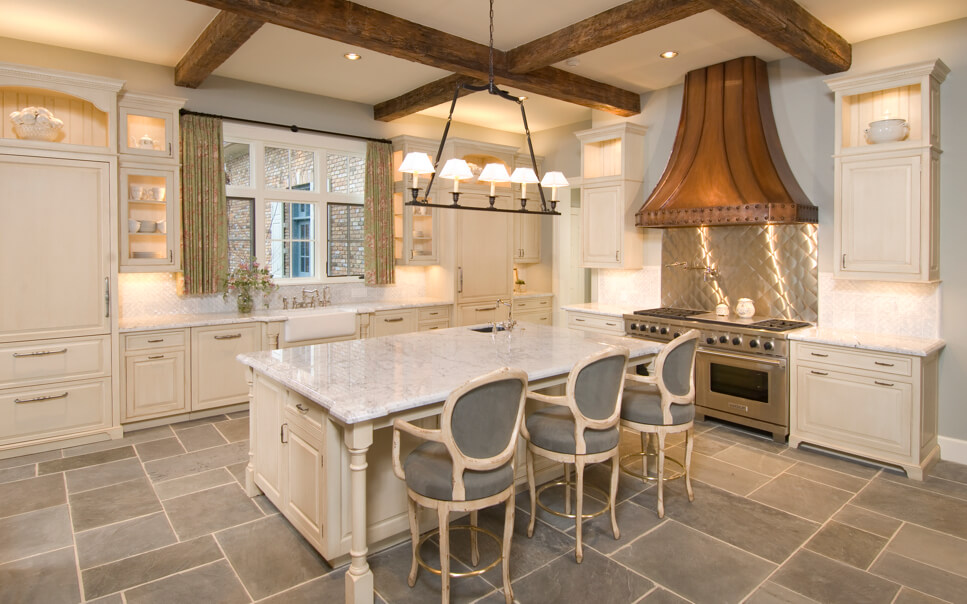
There are few things in a home that are more widely used and noticed than countertops. Finding just the right material to appease your design aesthetic AND satisfy your desired use and maintenance level for the countertop is quite a challenging – and exciting – endeavor. We hope this article will help shed light on some pros and cons of several common countertop materials for your custom home.
The first four countertop materials in this article are natural stone while the final five materials are engineered, or manufactured, countertops. You can download this printable chart comparing several countertop materials for easy reference.
Granite
Granite countertops have been a staple in semi-custom and custom homes for decades now, namely because of its wide availability and durability. It’s very resistant to scratches, heat, and stains and is very sanitary. There is also so much variety when it comes to granite, giving homeowners nearly 3,000 different options.
As far as negatives go, there aren’t many when it comes to granite. Like any natural stone, there may be some undesirable variability or imperfections in a given slab. Also, granite is fairly porous and requires sealing with a high-quality sealer.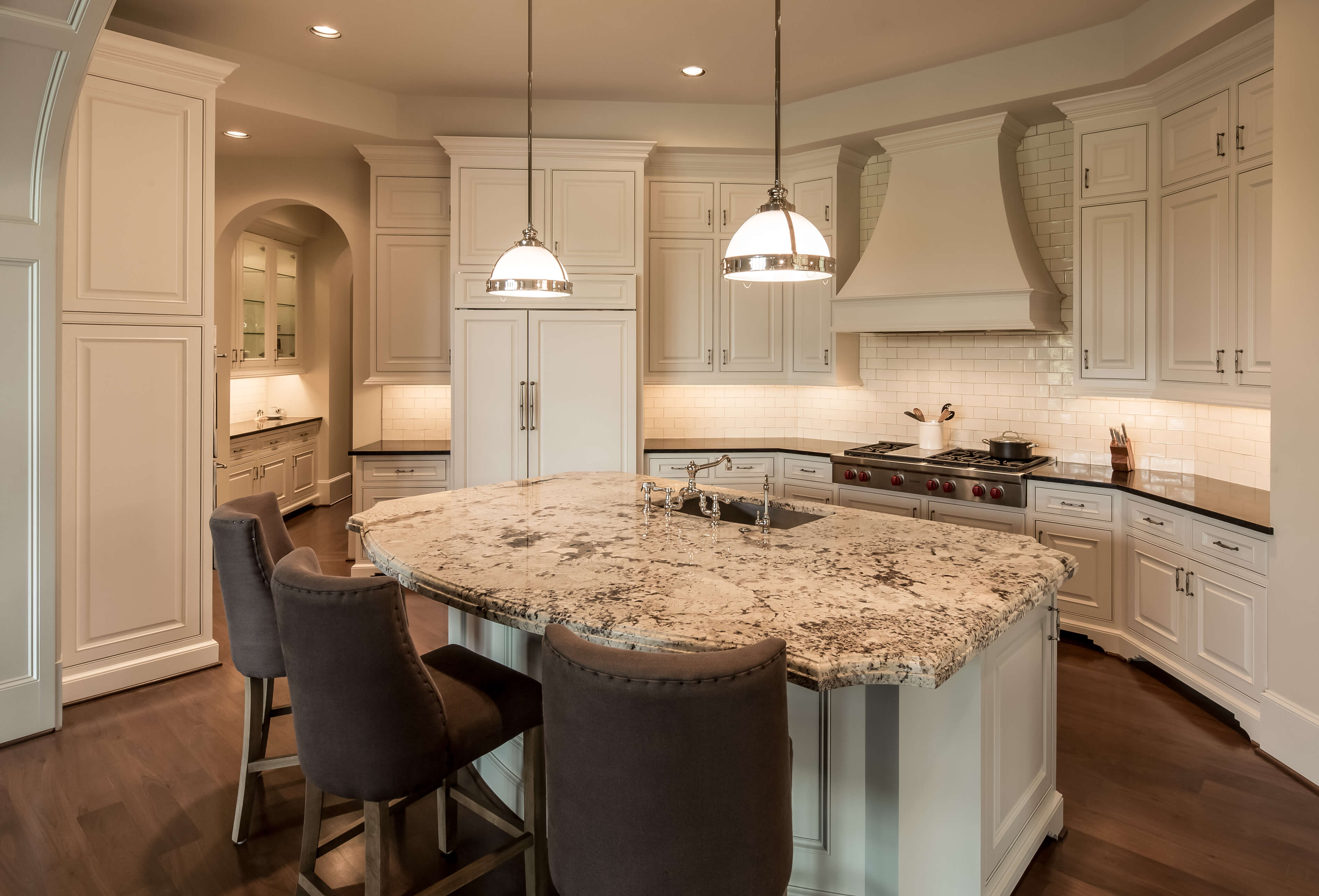
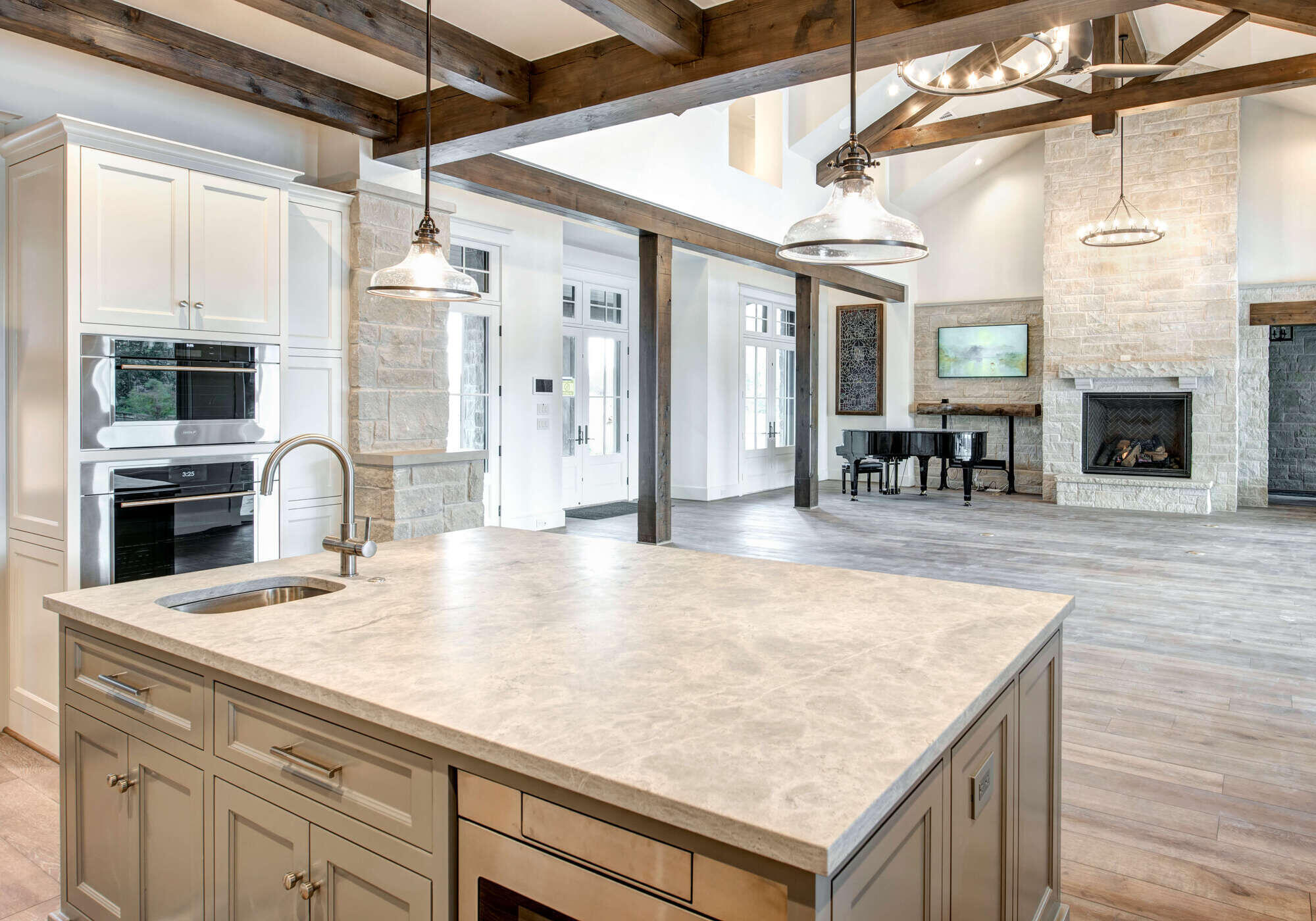
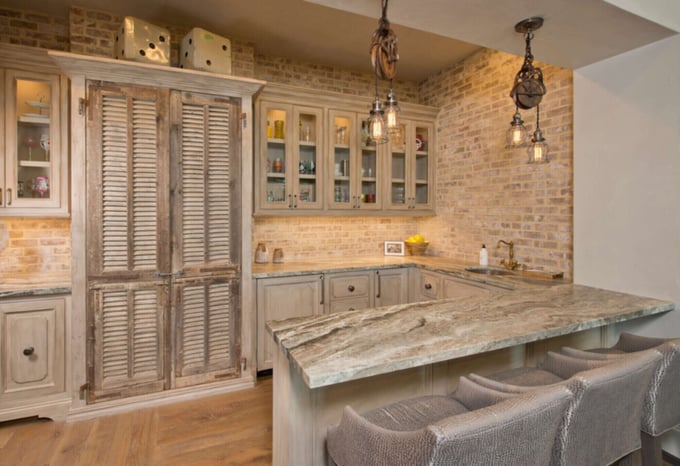
Marble
Marble’s most notable advantage is the beautiful white hues and unique veining in its slabs. It is also waterproof and very heat resistant.
Unfortunately, marble is not scratch-resistant and does stain easily as liquids are absorbed quickly into the porous material. Marble countertops need to be sealed regularly to protect and preserve them. Marble is often very expensive as well, which is why it’s often used on a feature countertop, like an island, instead of around an entire kitchen.
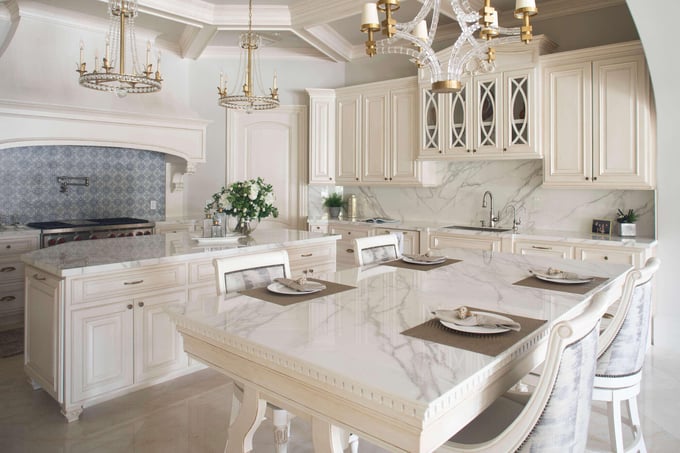
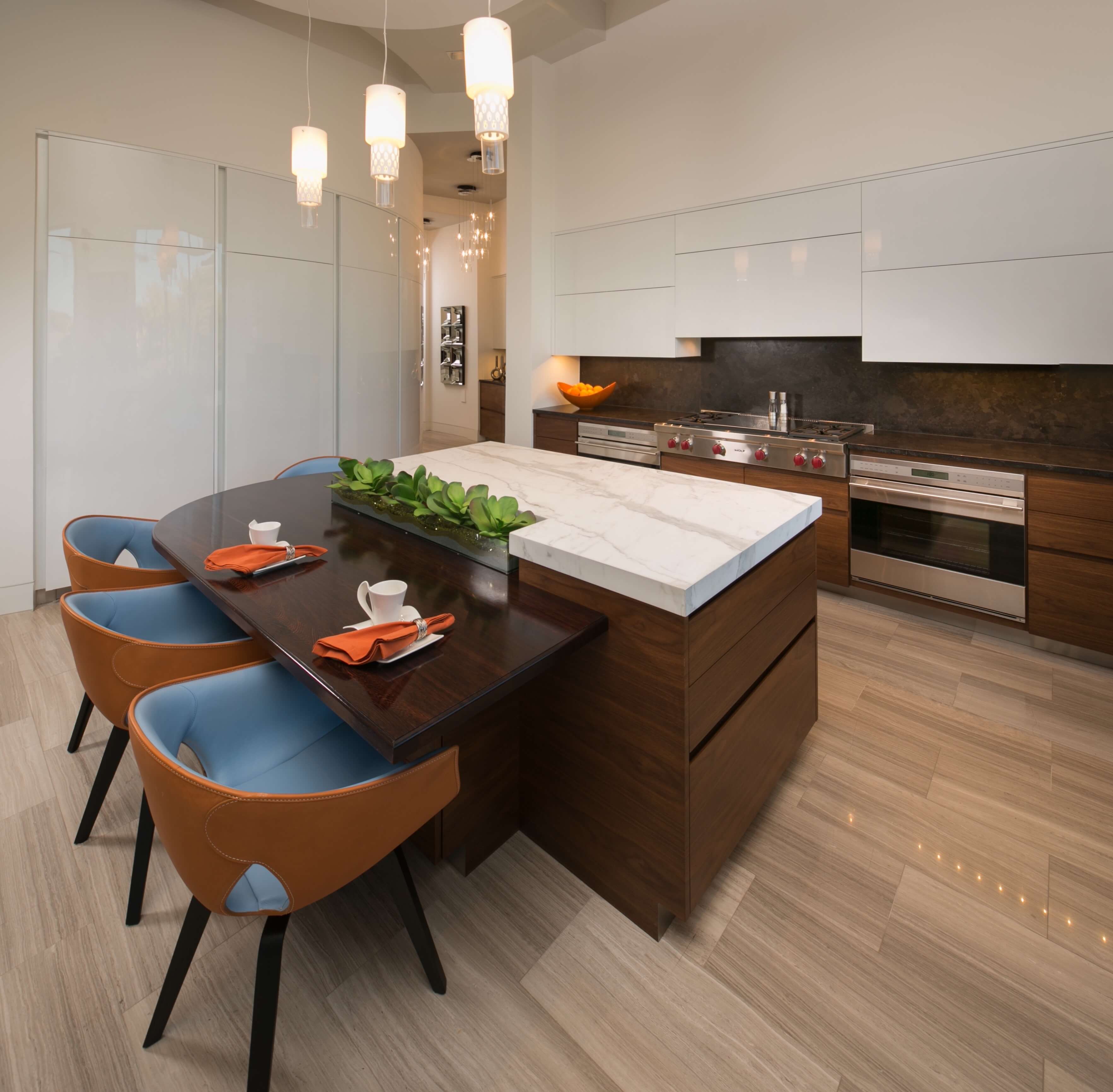
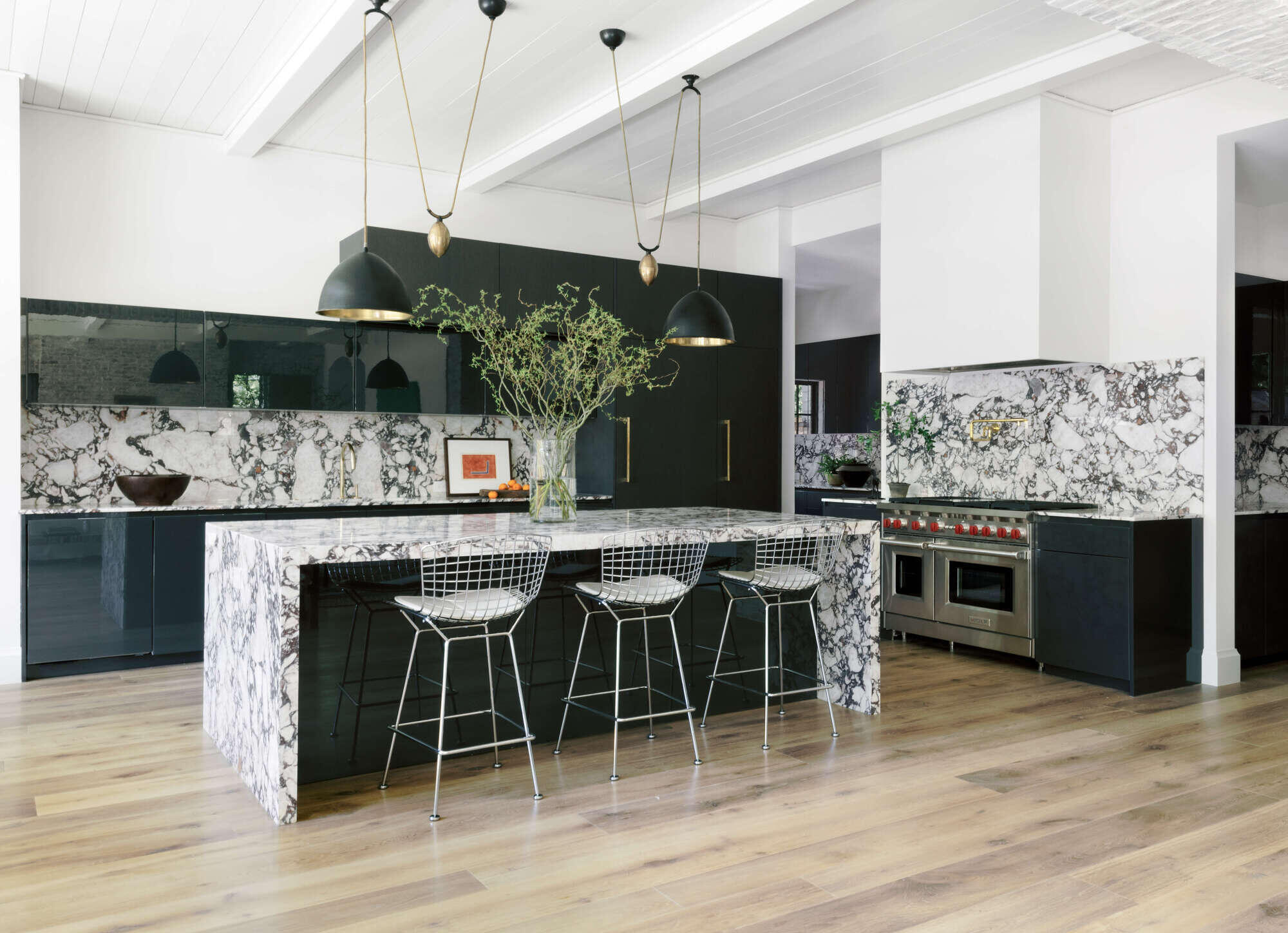
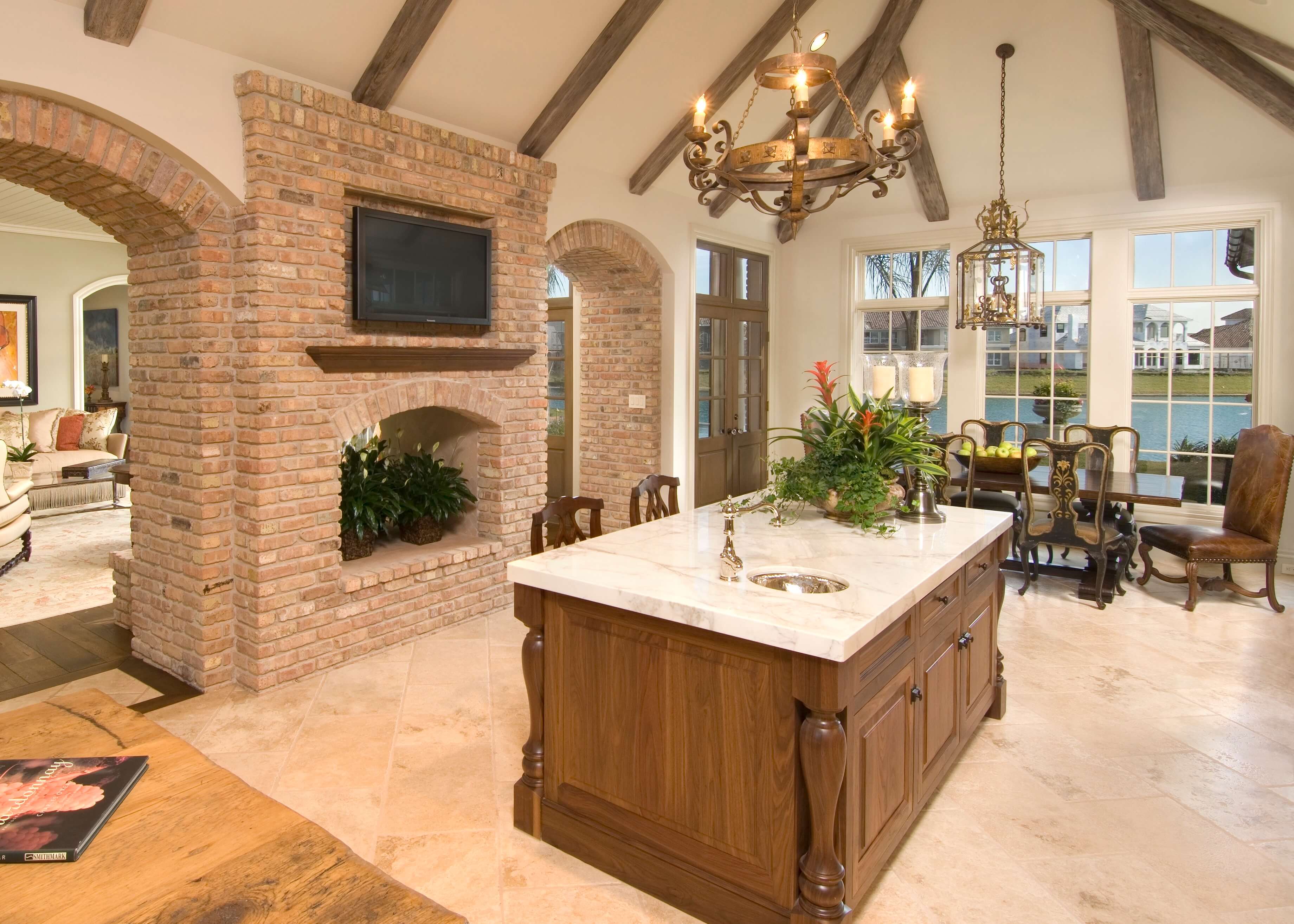
Limestone
Although limestone countertops are often used in exterior locations, they can be used for interior applications as well. Limestone is heat-resistant and is also available in a variety of price points, making it potentially more affordable than other natural stone countertops.
Limestone is not scratch-resistant and is very porous so it should be sealed regularly.
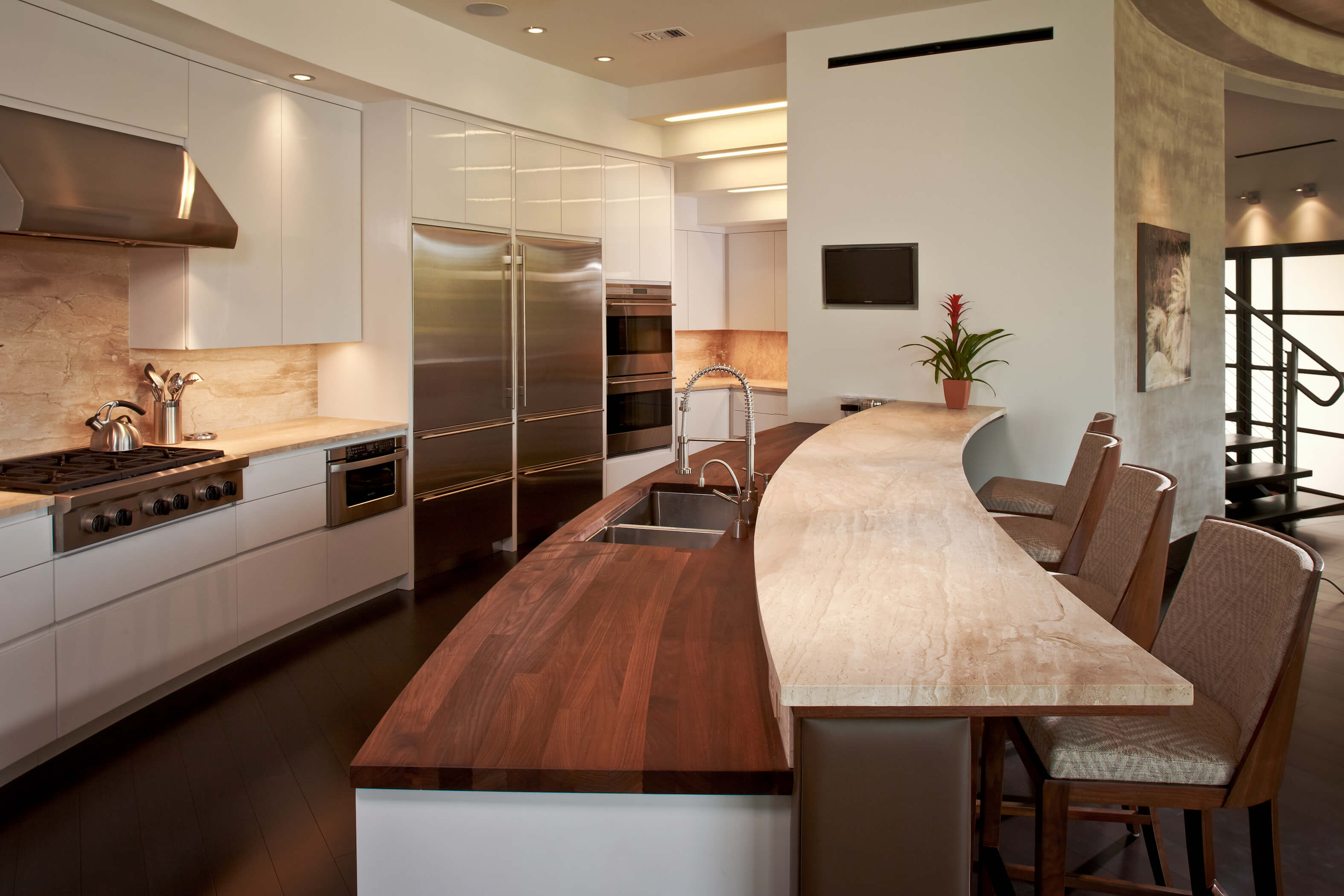
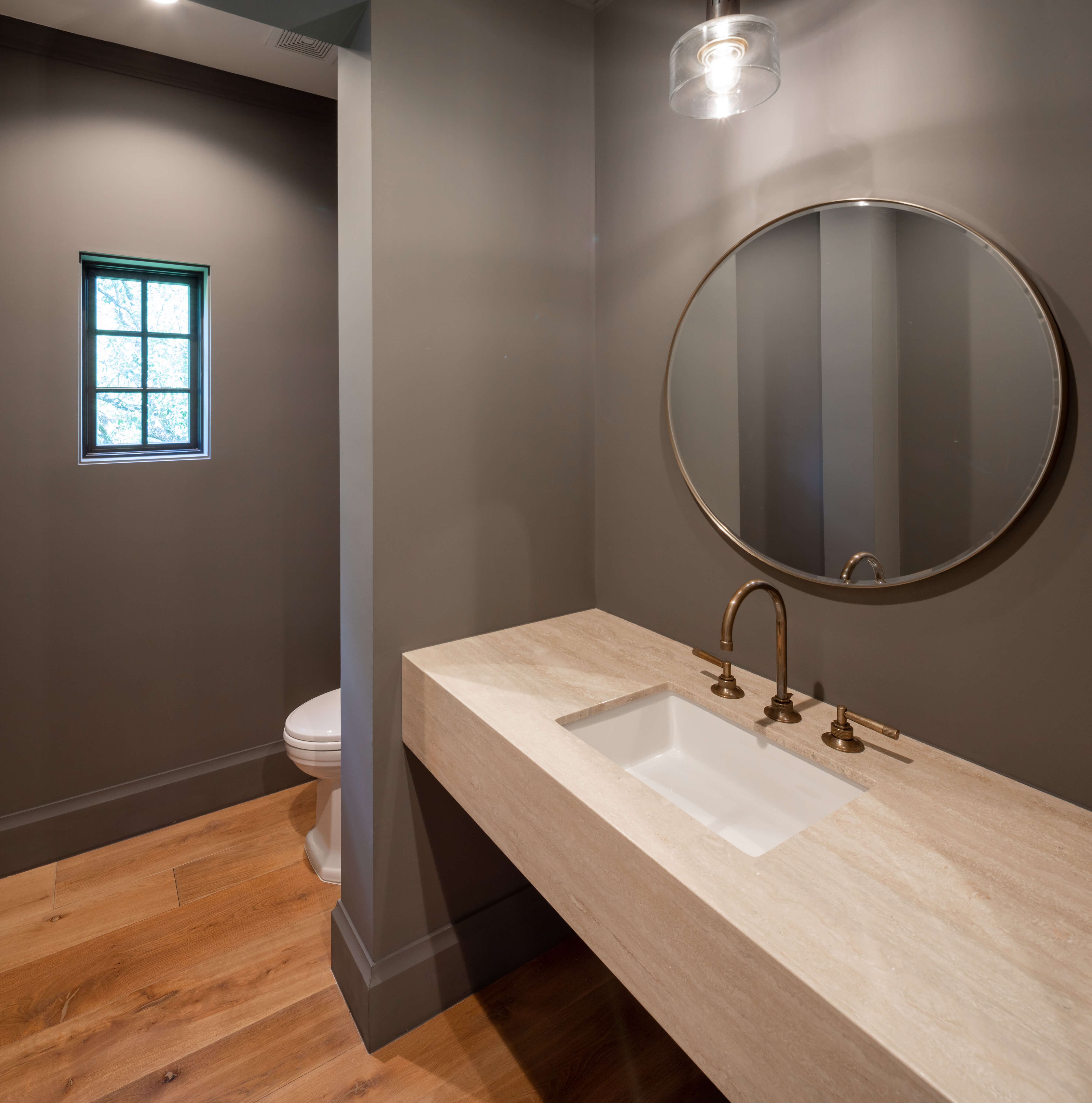
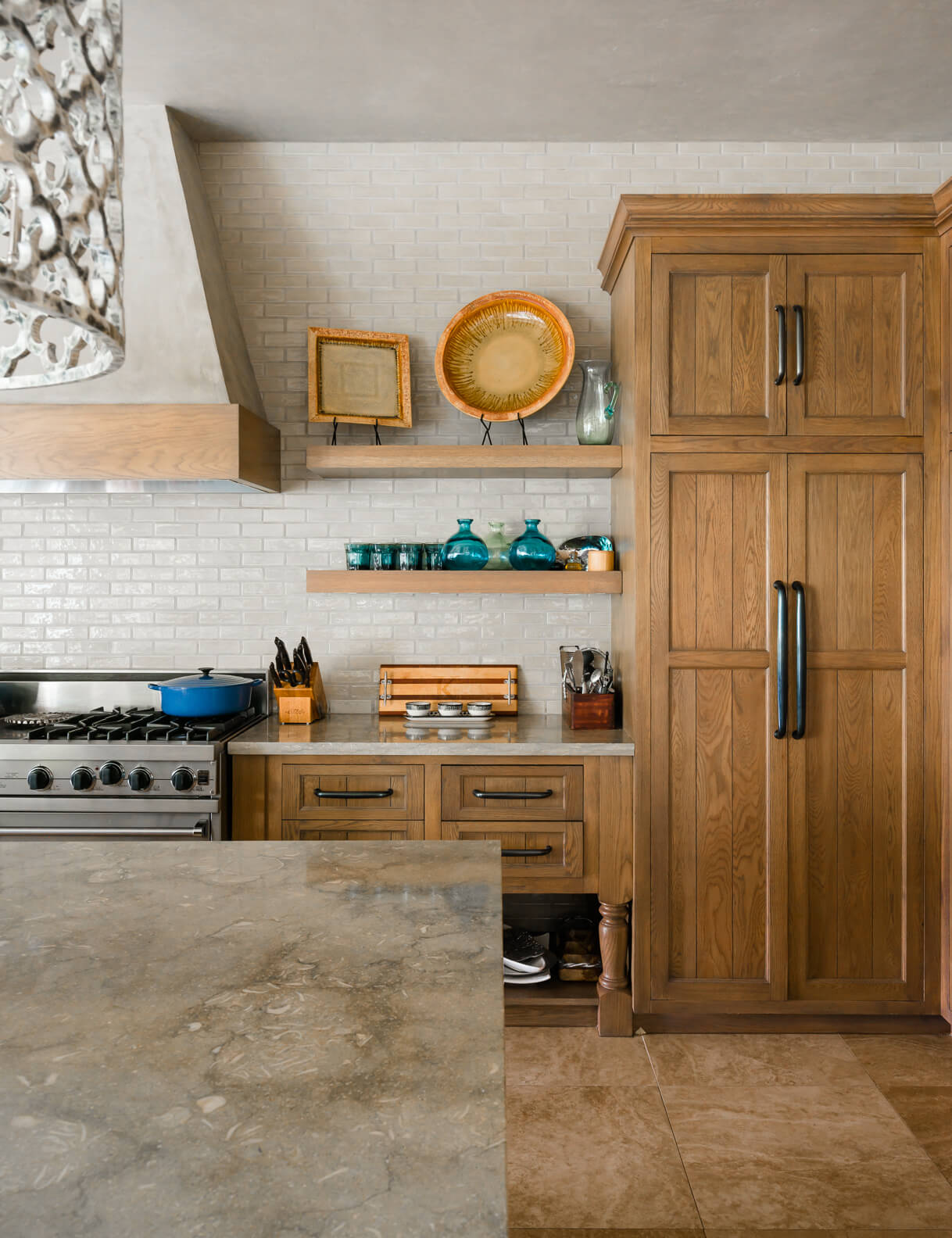
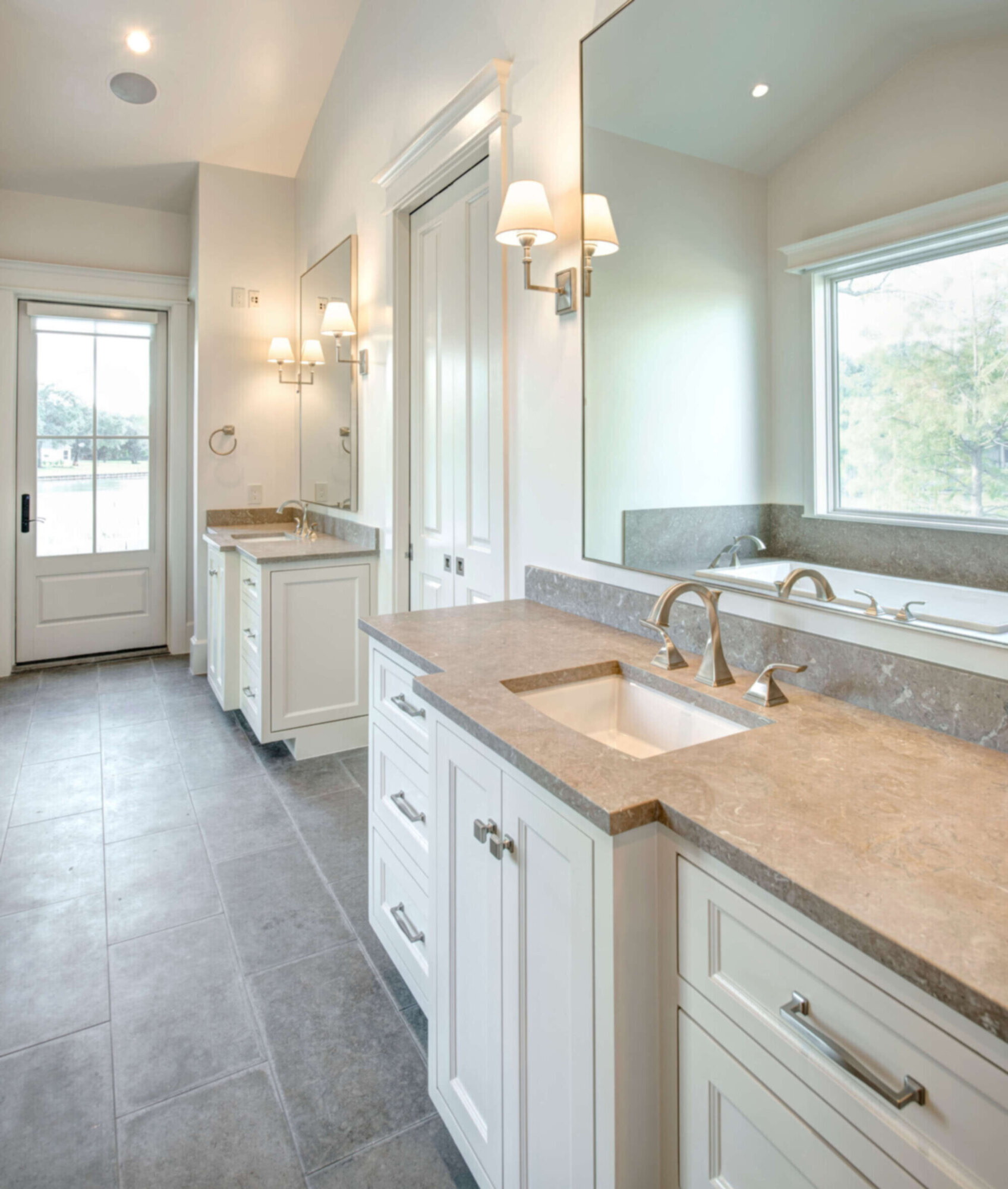
Quartzite
Quartzite, not to be confused with Quartz, is a natural stone. It’s known for its hardness, durability, and low maintenance. It doesn’t require special cleaners to care for it; just simple soap and water will do.
As Quartzite is a natural stone, it is heat resistant, but be sure to use trivets or pot-holders to protect it from direct heat. Also, it should be sealed to protect and preserve it. Color options are limited as Quartzite is a natural stone and slabs tend to be naturally-occurring off-white or grey hues.
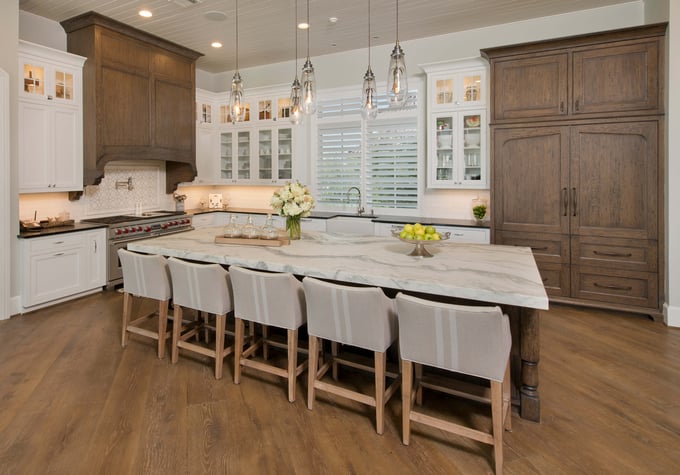
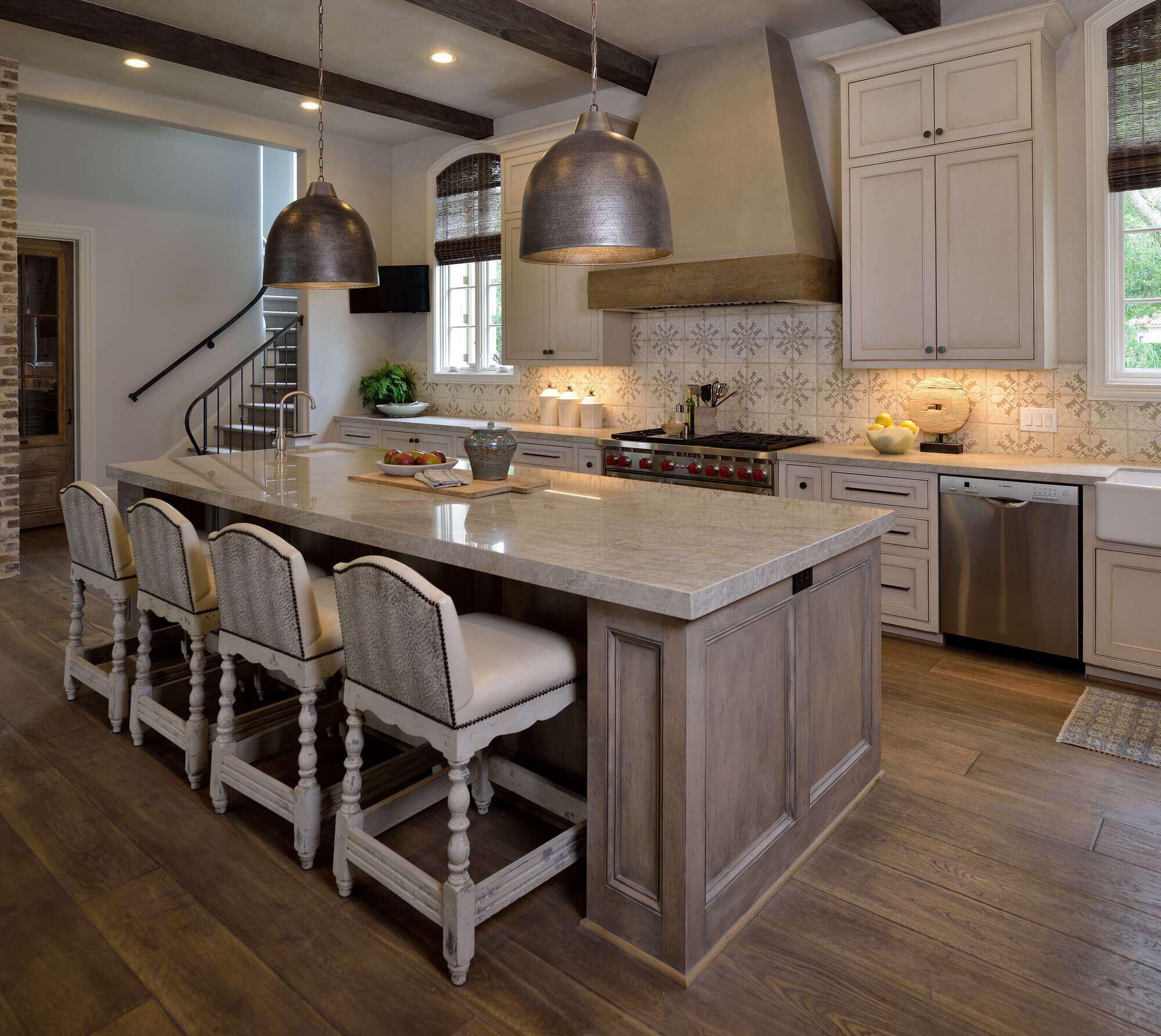
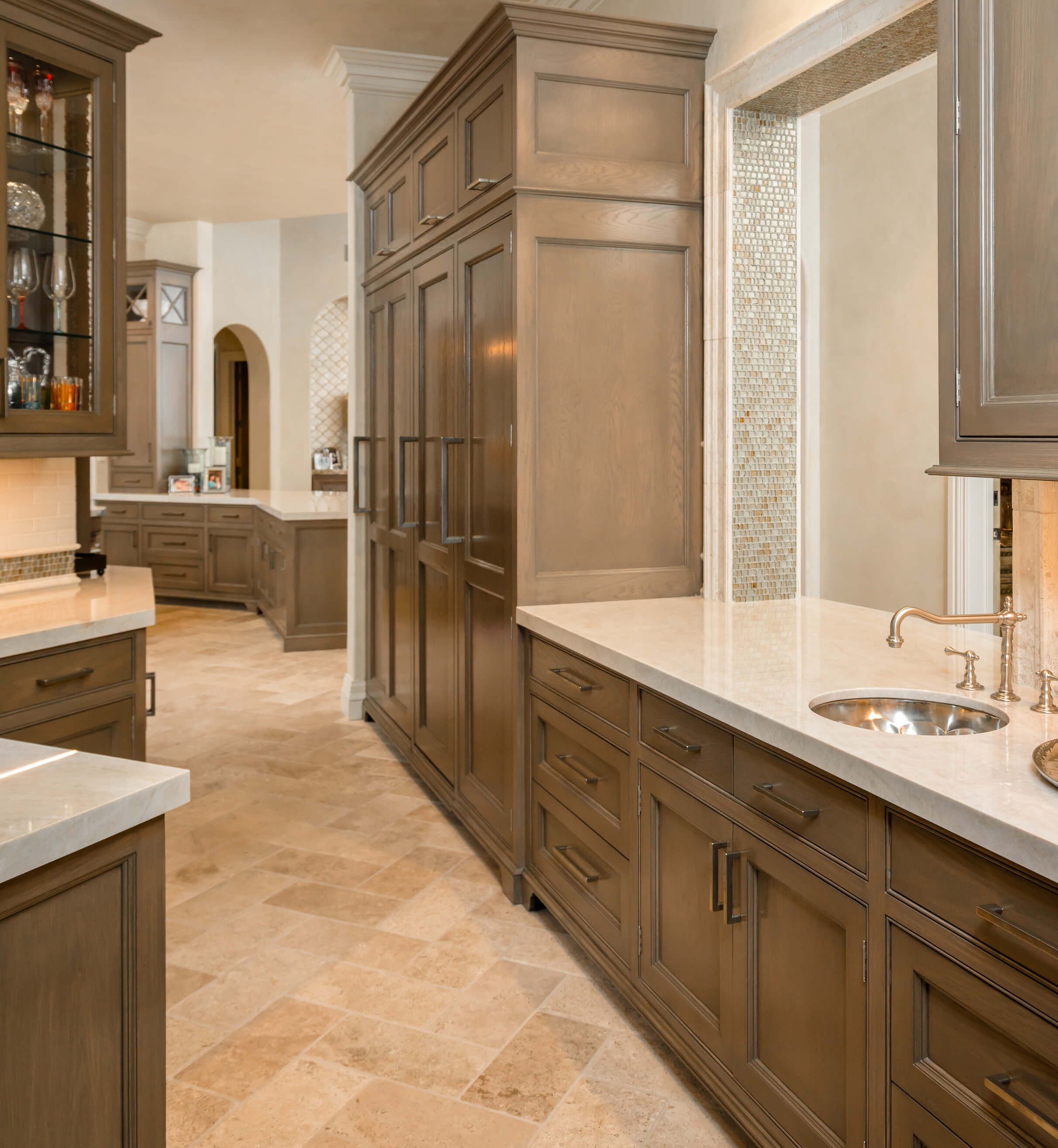
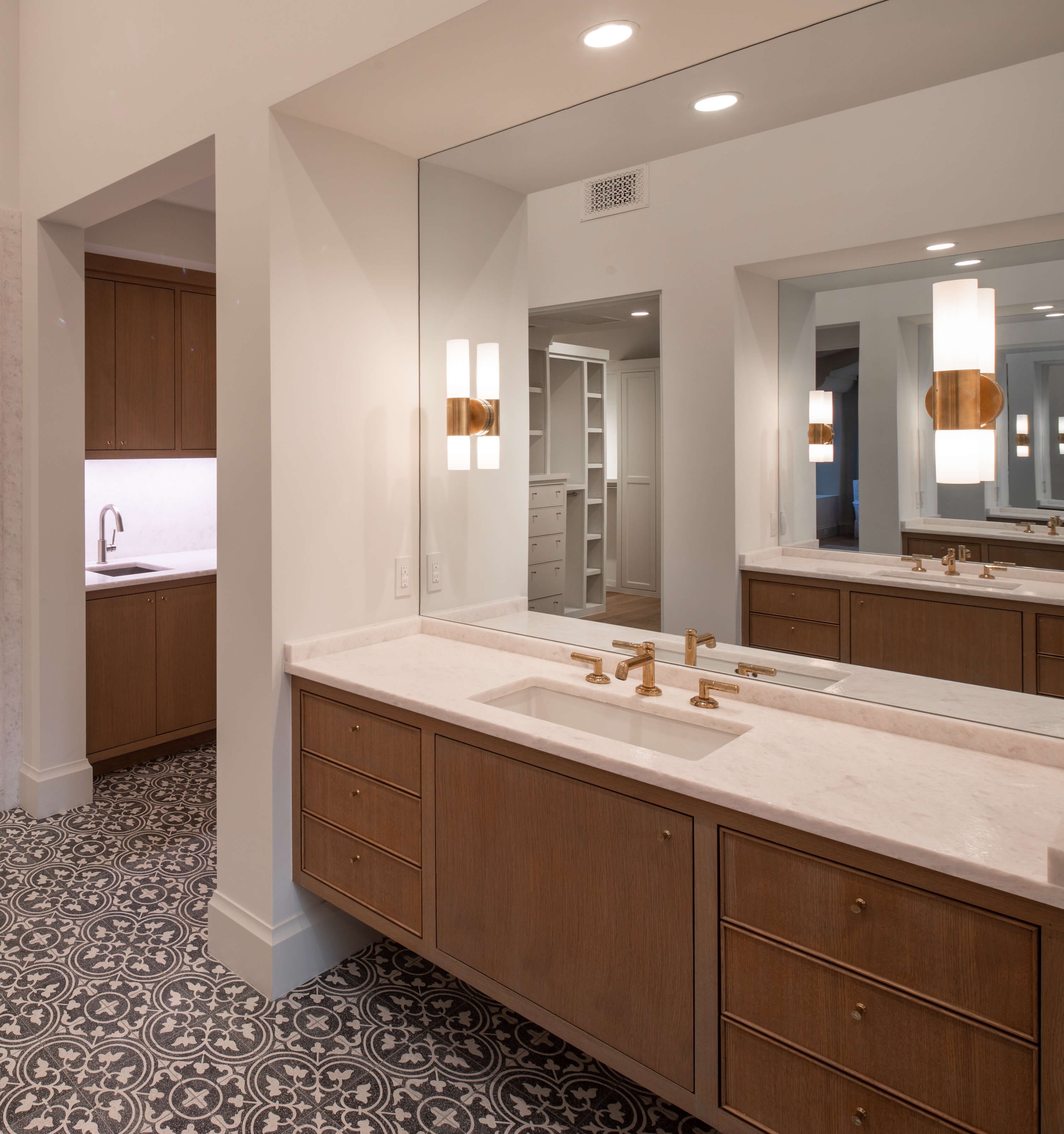
Quartz
Unlike Quartzite, Quartz is a manufactured material rather than a natural stone. As such, Quartz is not porous or easily stained, and it is scratch resistant. Thanks to these qualities, it is very easy to clean and maintain and does not need to be sealed. Because it is an engineered product, it comes in a large variety of brands, colors, patterns, and designs. These colors and patterns are consistent across entire slabs as opposed to the inconsistency in color and veining that happens in natural stone.
On the negative side, Quartz is not as heat- or impact-resistant as natural stone. This makes it not well suited for use in exterior spaces or as fireplace surrounds. It is also heavier than natural stone so careful installation and proper structural support are a must. Oftentimes, Quartz material can be very expensive.
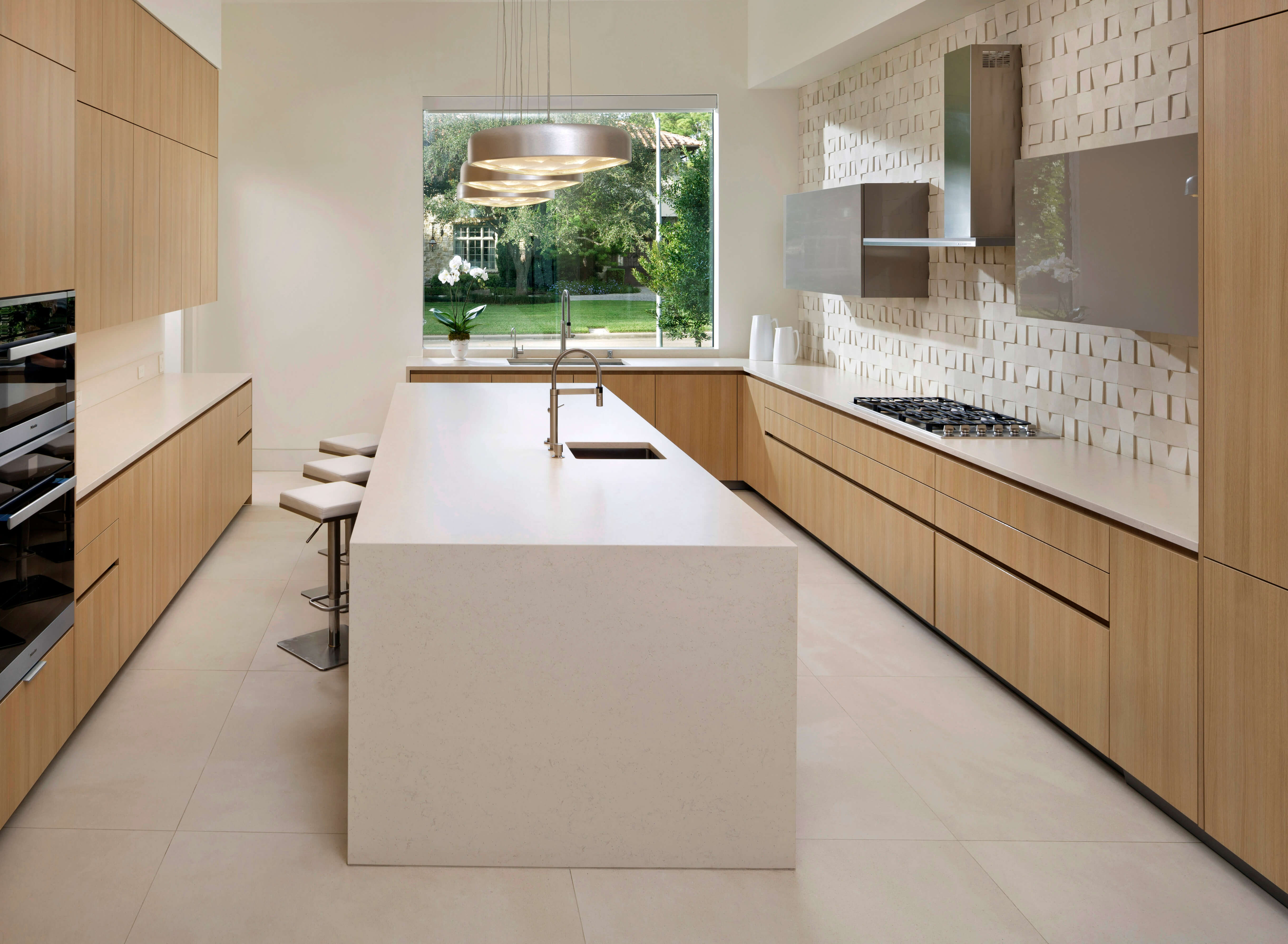
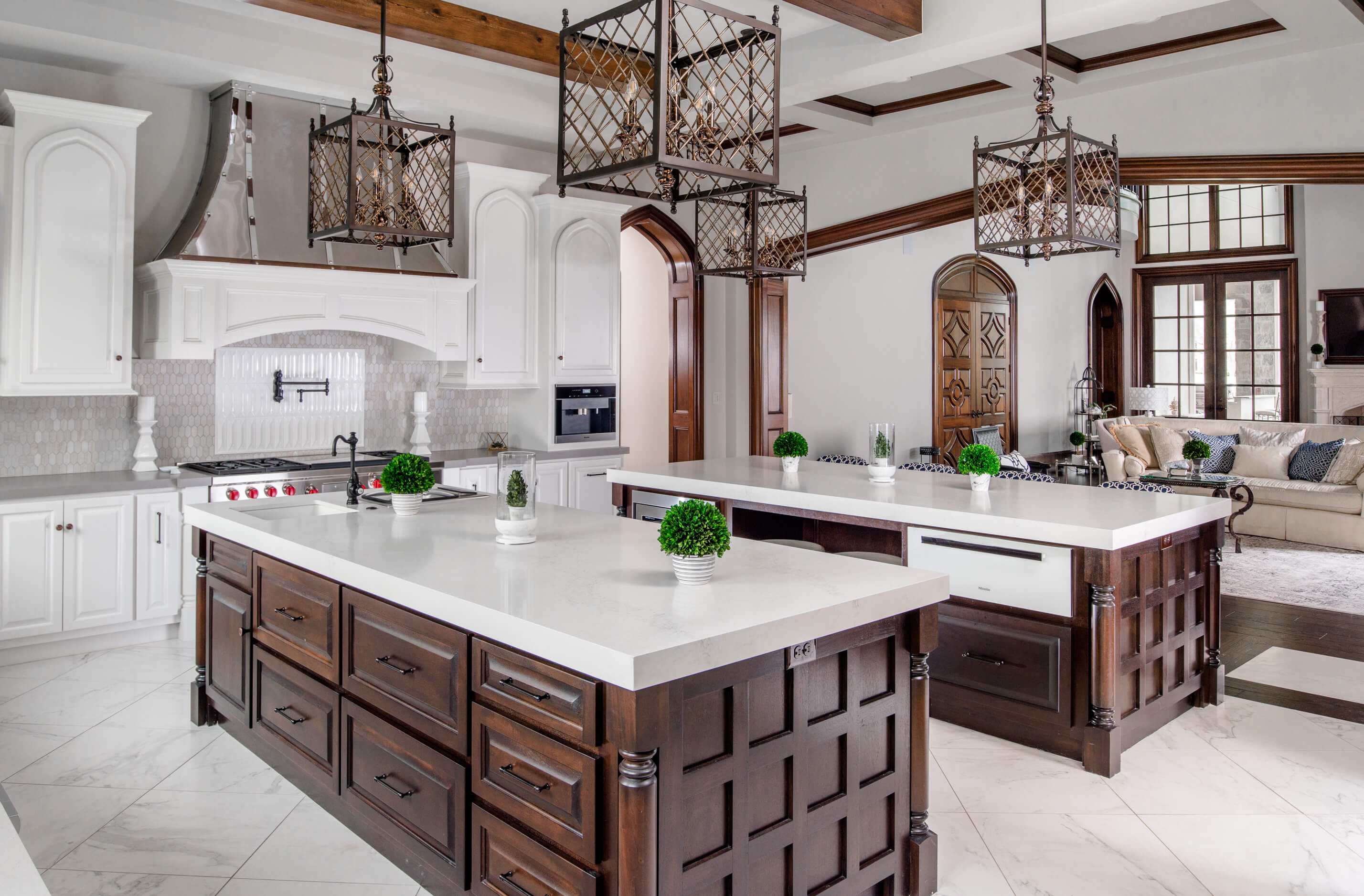
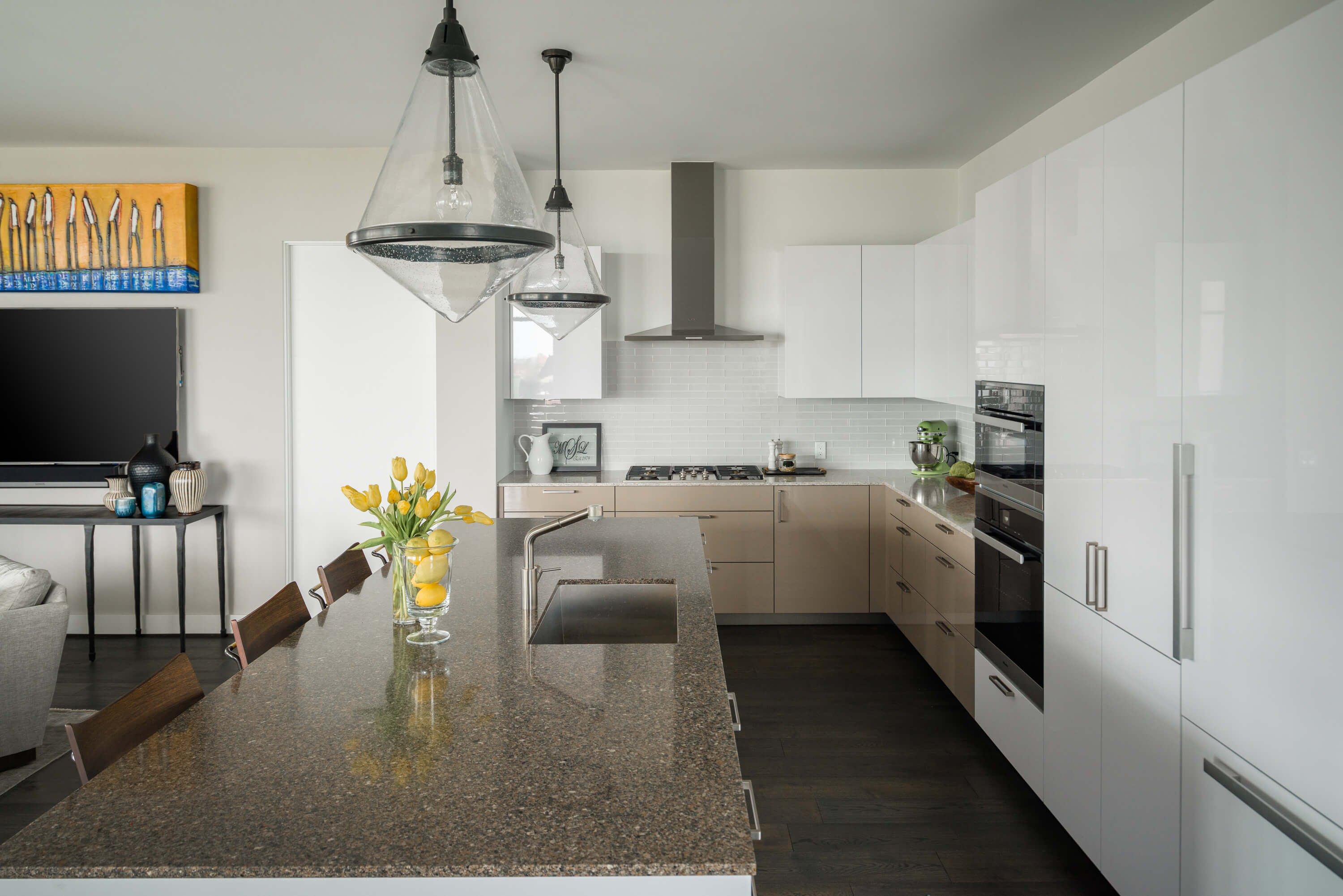
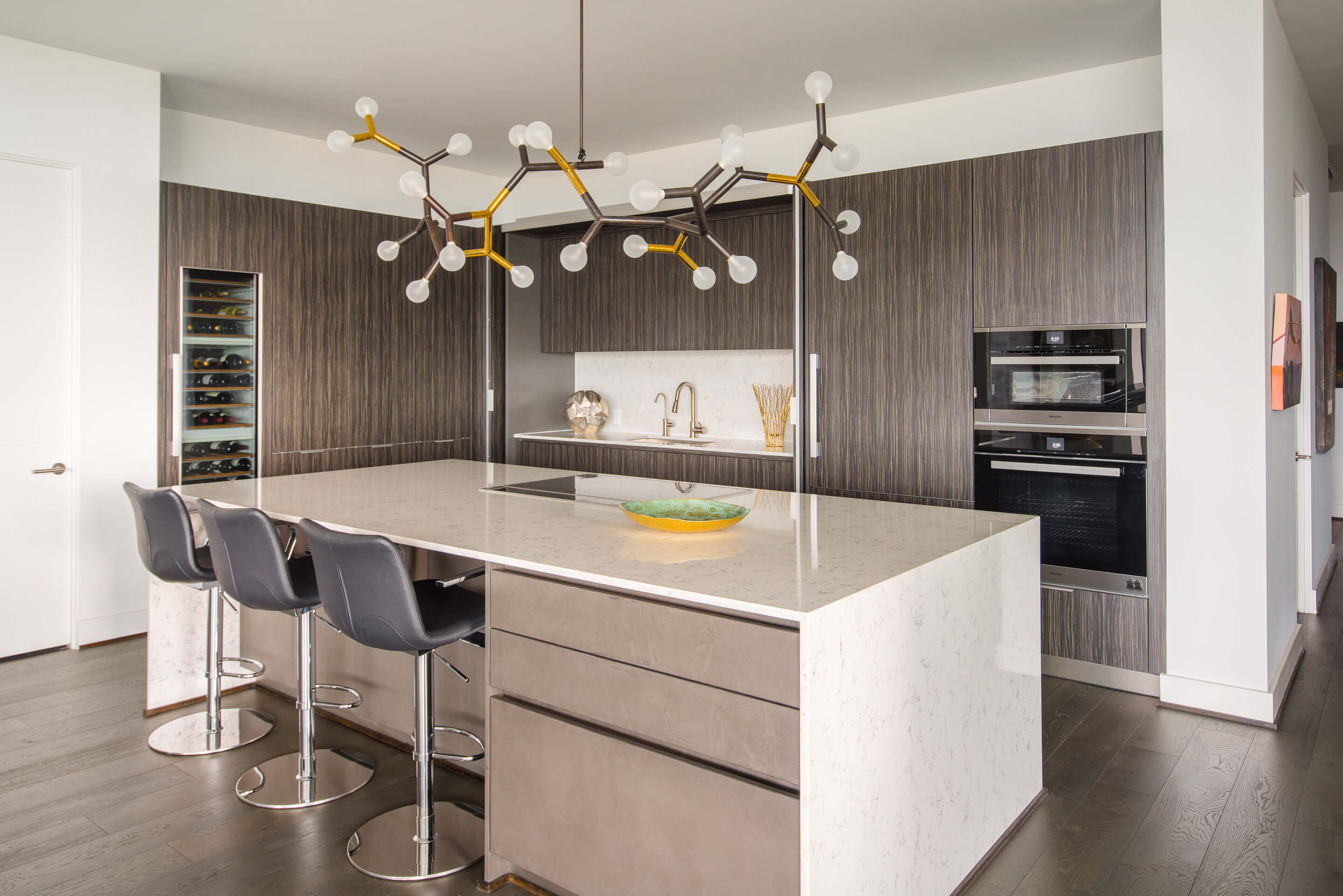
Concrete
With poured-in-place concrete countertops, it’s possible to have an entire kitchen without any seams! Concrete countertops are most often used in transitional or modern spaces, are heat-resistant, and can be textured, shaped, and colored to suit.
Without proper sealing, concrete countertops can be susceptible to stains and scratches. Abrasive cleaning solutions and tools can damage the sealer so great care should be taken when maintaining concrete countertops. Cracking is also a possibility as a house settles over time. Finally, poured-in-place concrete countertops are often a very expensive option.
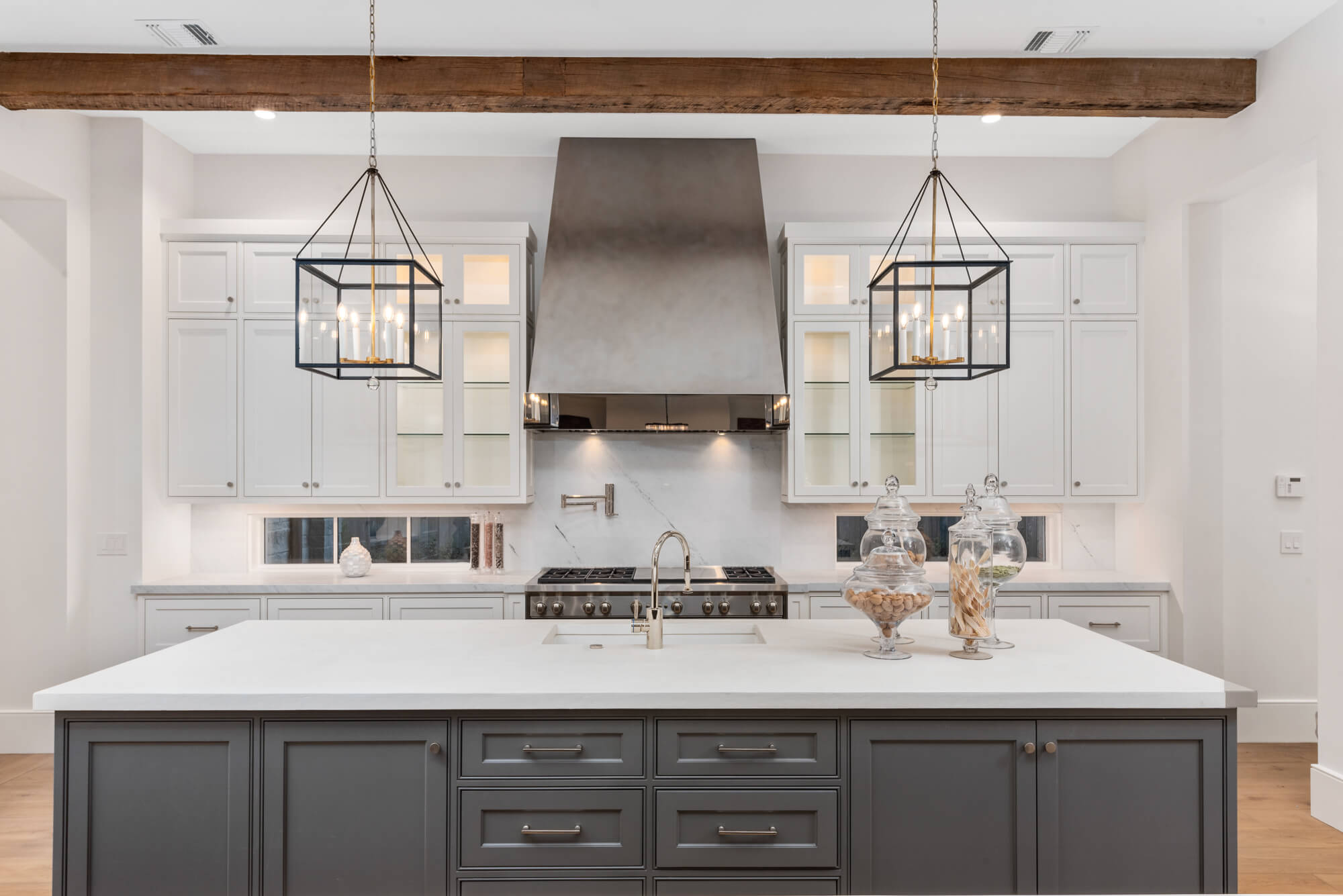
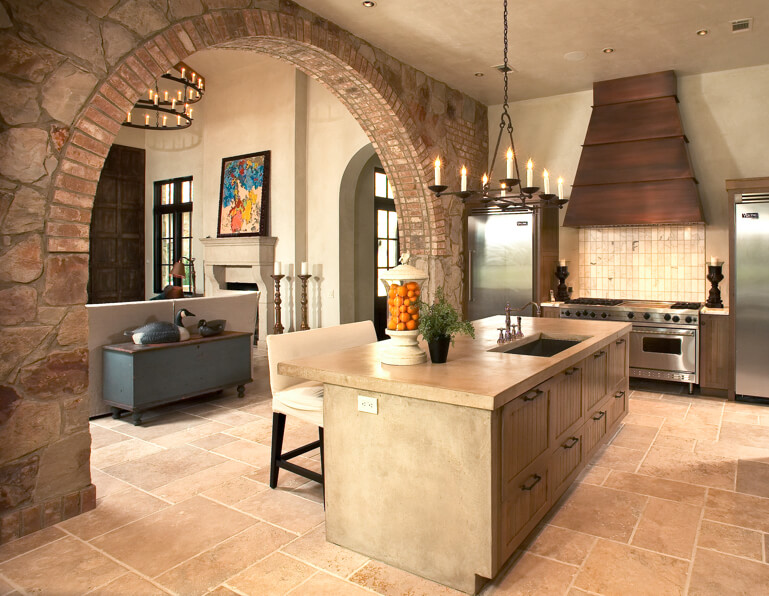
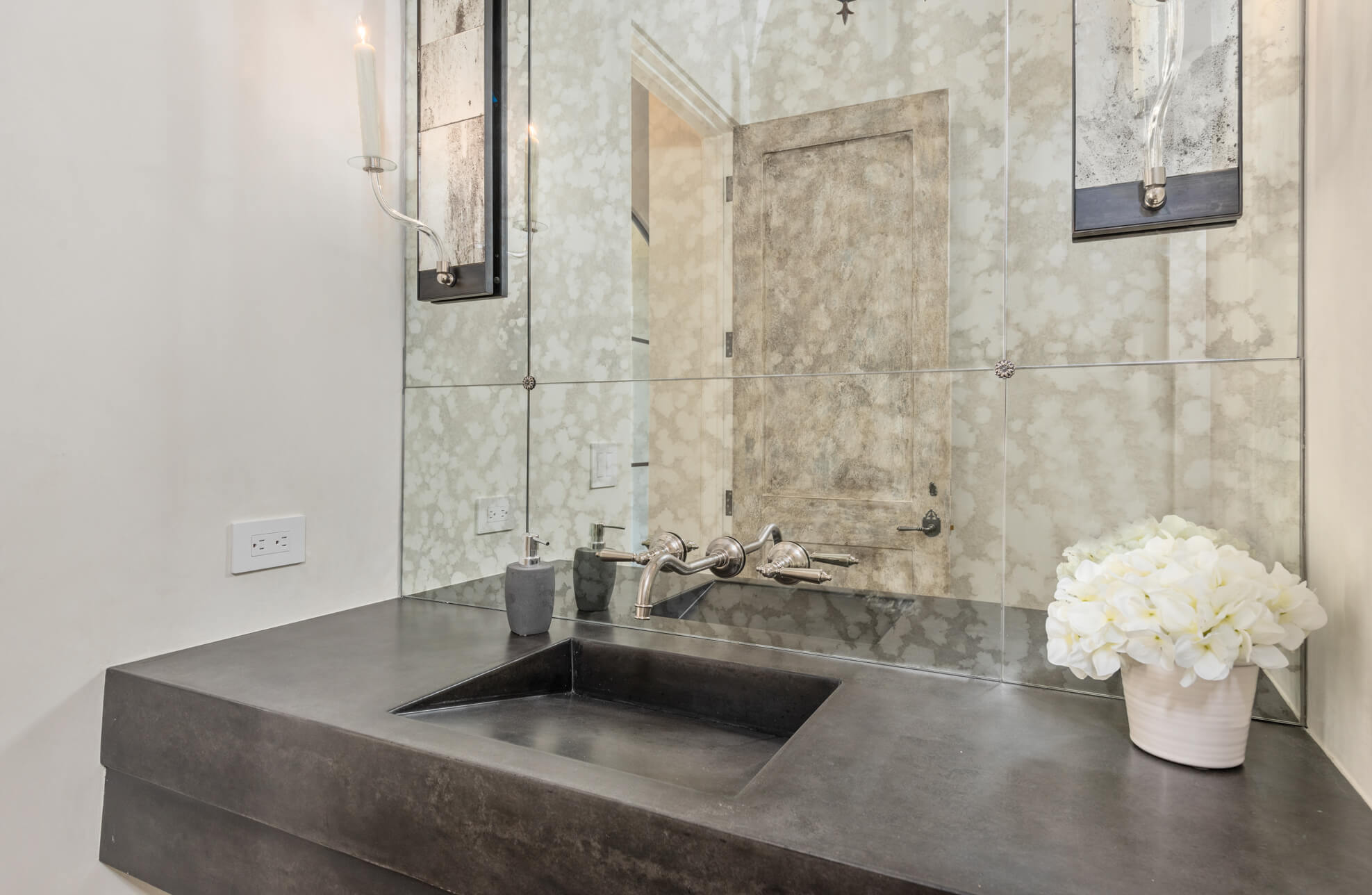
Butcher Block
Wood countertops fit well into both modern and traditional-styled homes. There is a variety of wood types to choose from, depending on the hardness level, graining, and coloration/hue that you desire. Wood offers a warmer touch and feel to spaces compared to natural or engineered stone. Any nicks or stains to butcher block countertops can be easily repaired, and the countertop can be sanded down and re-stained whenever desired.
Wood butcher block countertops need to be properly oiled and sealed with a high-quality sealant regularly. Water damage or high moisture levels in a home can cause the countertop to bow slightly, so care must be taken. Also, wood is not considered a highly sanitary material because its porous nature allows germs to survive and multiply. Finally, butcher block countertops are often expensive.
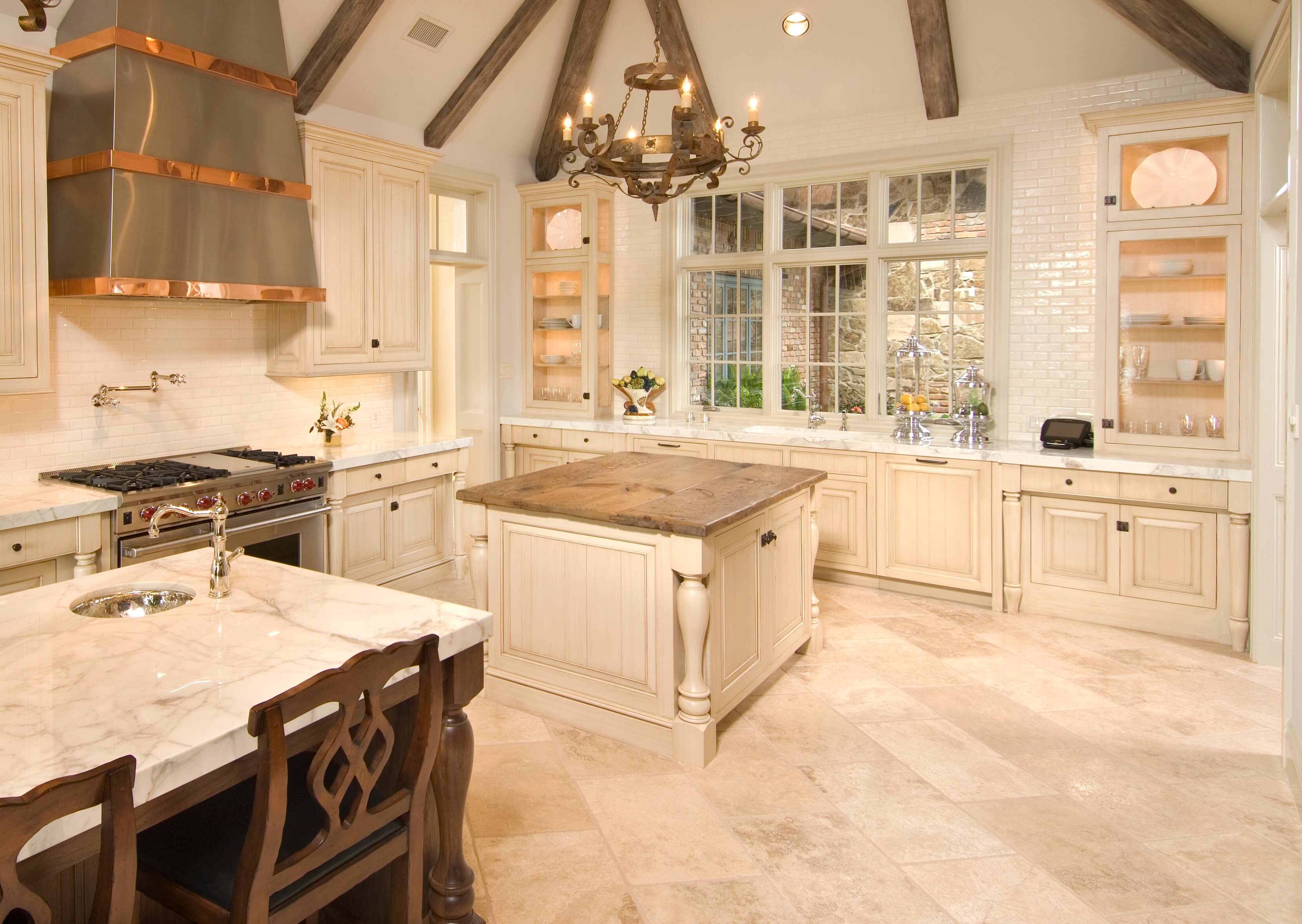
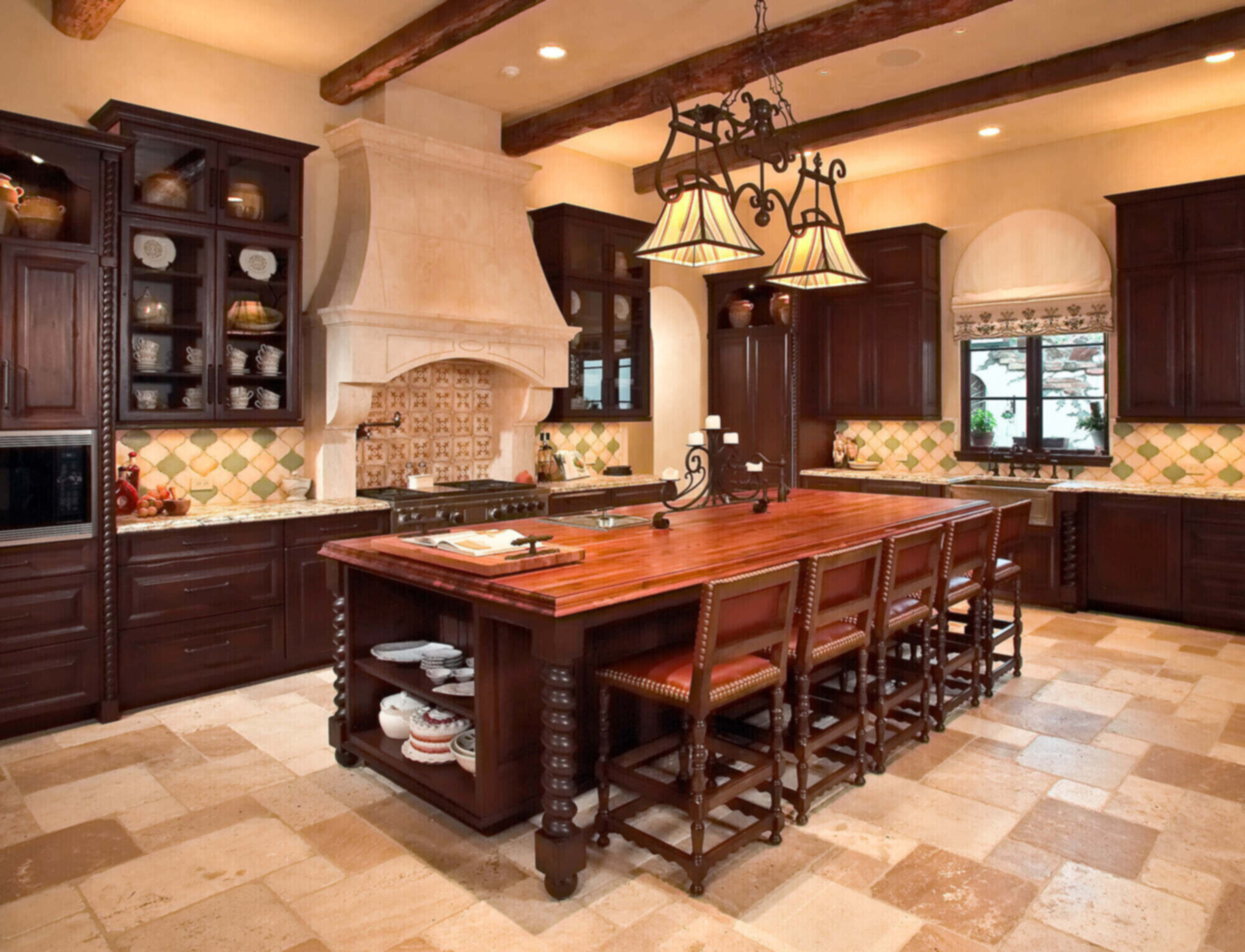
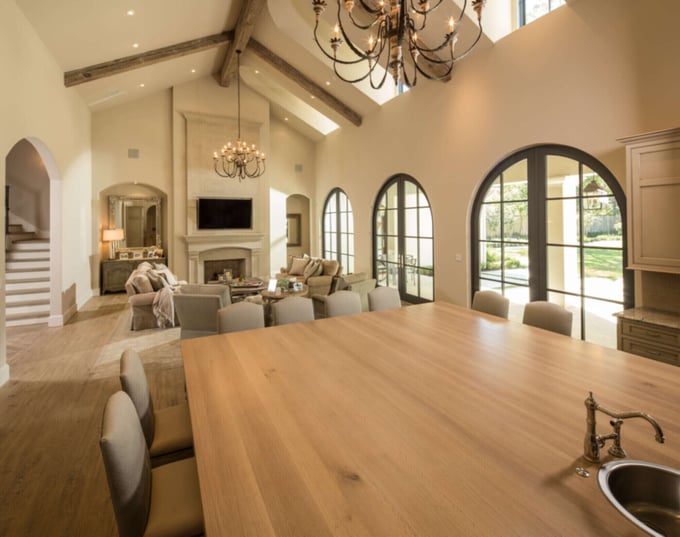
Tile
Ceramic or porcelain tile is durable, easy to clean, and considerably less expensive than other countertop materials. There are also hundreds of color and design options available, all of which are heat-resistant. It’s an especially good option for DIYers hoping to take care of a renovation without the help of experts.
Highly customized or hand-crafted tiles can be expensive, and many tiles can be easily cracked or broken either during installation or later. While tiles themselves don’t stain easily, grout can and is often difficult to clean. Typically, tile is not a sought-after countertop material the way that natural or engineered stones are.
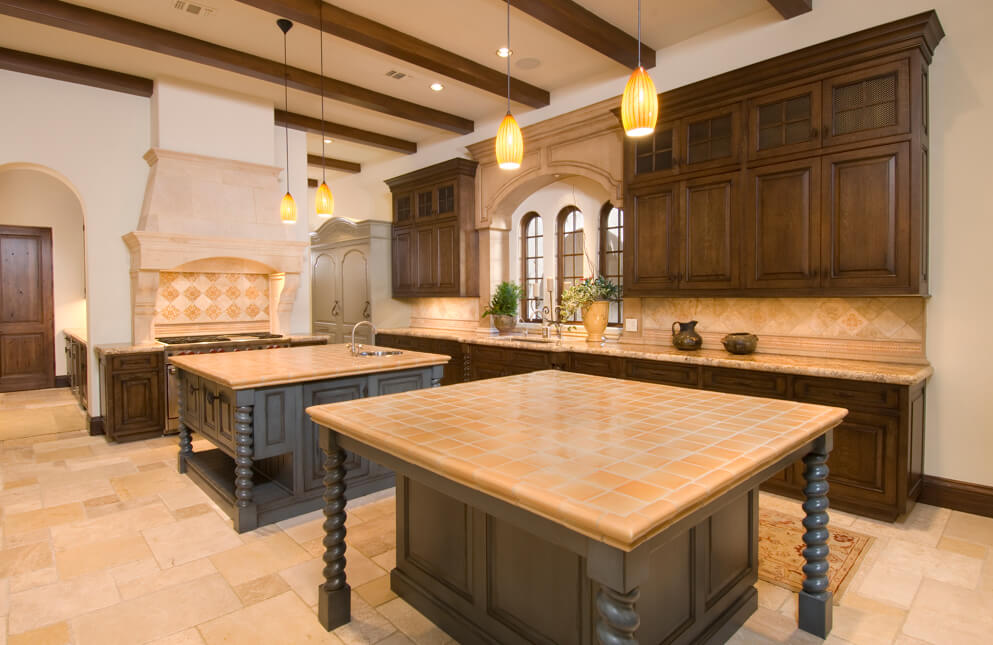
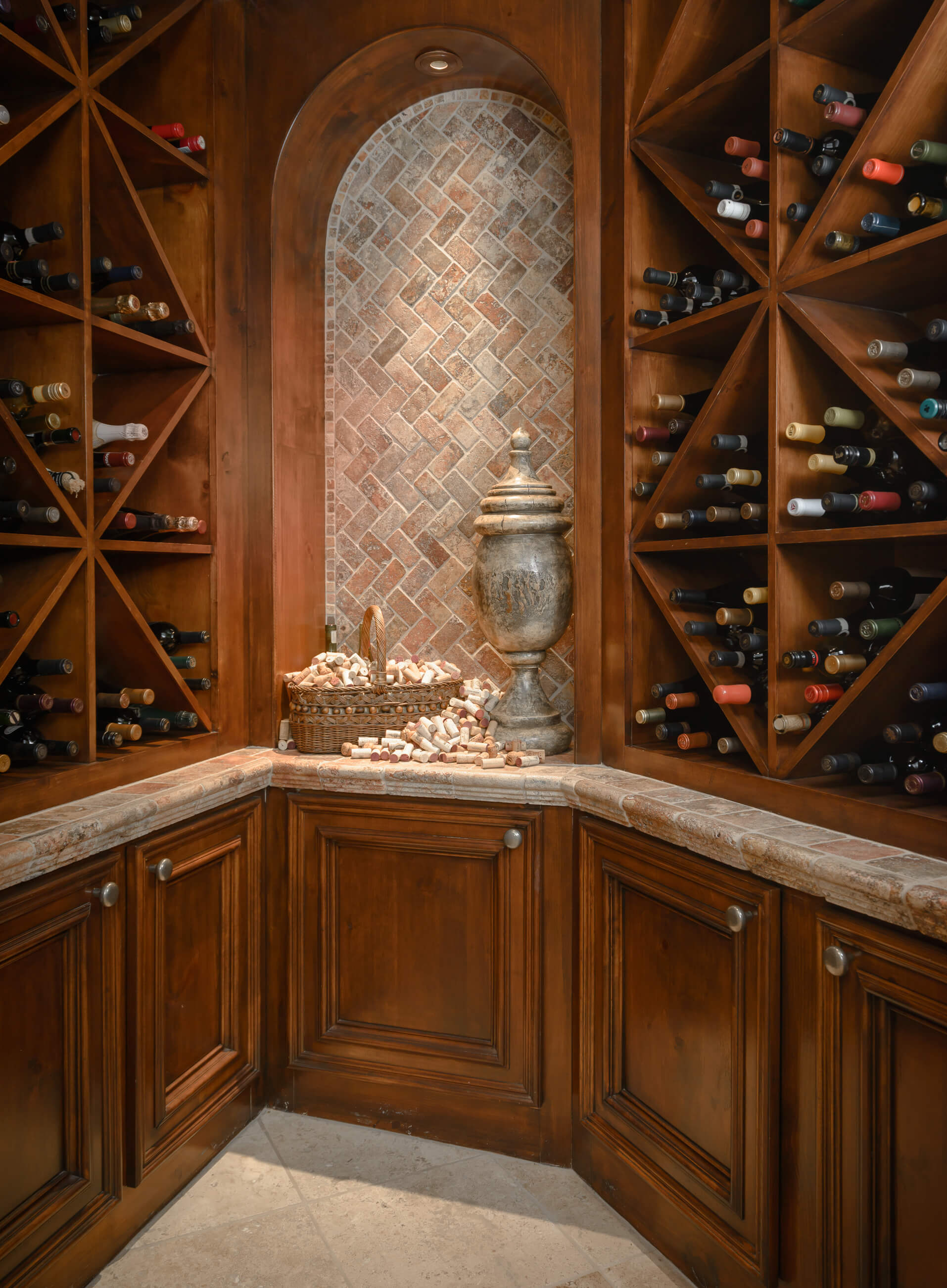
Stainless Steel
For a contemporary or industrial kitchen style, stainless steel countertops may be a good option. They are very heat-resistant and are the easiest to clean of all countertop materials.
Stainless steel countertops can be loud with daily use and can be easily scratched. In addition, they are often a very expensive countertop material option.
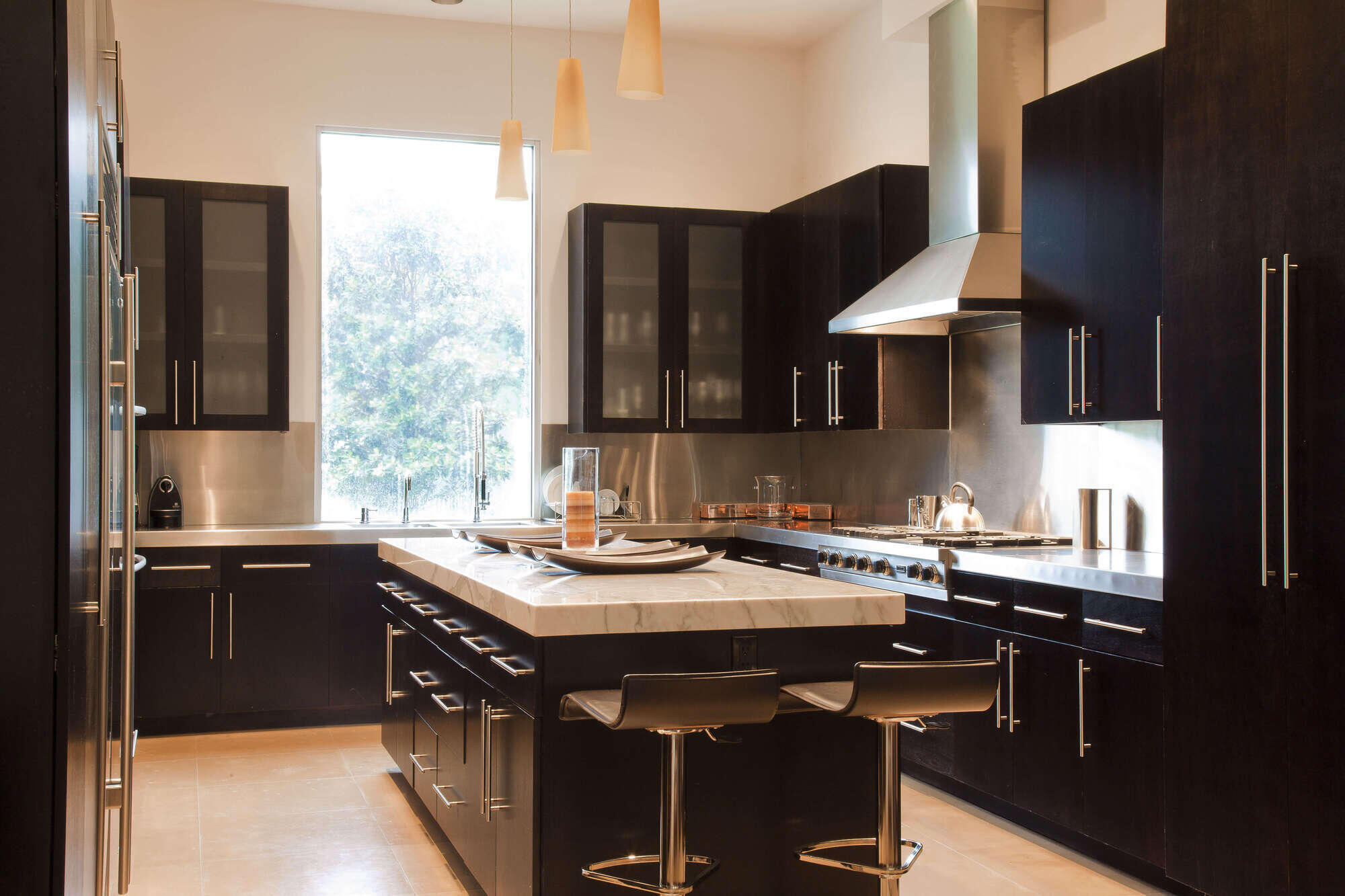
We hope the information and photos we’ve shared in this blog post have helped you weigh your countertop material options. With the help of the right interior designer and custom builder, choosing the best countertop material for each space in your home should be fun and exciting!




COMMENT ON THIS ARTICLE